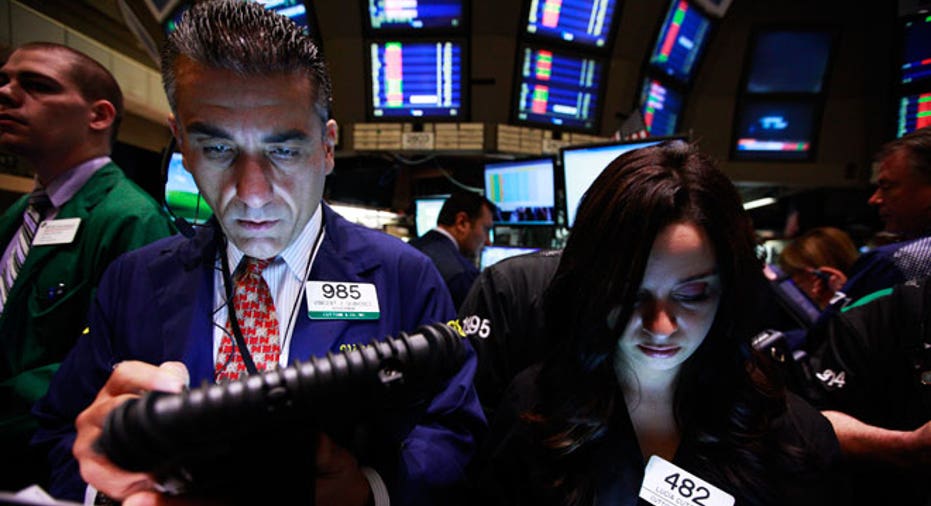Think Like a CEO: Ignore Market Turbulence

If you’re the CEO of a public company, watching your share price is like shaving in front of a distorted mirror. Good chance you’ll cut yourself. As a friend once told me, “I know where my razor is and I know where my face is. Why do I need a mirror to shave?”
The last year or so, growth stocks were hot. Now that the public and private markets are both tanking, value is back in so we’re all tightening our belts. Investors are pulling back too. But is that a smart strategy? Of course not. It’s not even a strategy. It’s dumb. Reactive. Emotional.
Here’s the thing. Smart investors buy low and sell high, but how many actually do? Not many. Instead they panic and sell when the market is tanking and buy when it’s frothy. Bad investors.
Likewise, smart CEOs spend to grow their business and pull back in anticipation of a capital crunch. If, on the other hand, they react to their share price, they risk being whipsawed by market sentiment. They risk being reactive. When it comes to strategy, smart CEOs follow the old hockey-ism and “skate to where the puck is going to be,” not where it is.
The only executive who should be paying attention to stock price is the CFO. It’s his job to deal with activist investors, share buybacks and the like. It’s his job to absorb market sentiment and keep it from messing with his company’s strategy and operations, not to mention his CEO’s head.
Whether you’re a CEO or an investor, here’s an axiom to live by: Ignore market turbulence. Keep your head straight, feet on the ground and execution on the strategy.
Take Amazon, for example. The online retail giant invested in hyper growth and operated more or less in the red in 2015, and the stock went gangbusters, more than doubling. Then the broad market sentiment turns bearish. Amazon delivers a rare profitable quarter and what happens? Not good enough. The stock tanks.
What’s the takeaway? Markets are emotional. Business strategy needs to be logical. And never the twain shall meet.
I recently heard from a reader who asked, “Can you explain AMZN? Not the biz model so much – I get it, ‘world domination’ – but more along the lines of the incredible confidence the market puts in the stock. While the theory of spending now to grab market share makes sense, when will investors demand consistent earnings?”
Funny thing is, I’ve never been a fan of Amazon’s business model but it’s working because Jeff Bezos is apparently very smart and knows a lot more about where he’s taking the Amazon rocket ship than you or I do. Investors who put their faith in him and his strategy, as opposed to what the market is telling them, have done very well.
The same is true of all the FANG stocks (Facebook, Amazon, Netflix, Google parent Alphabet). That’s because Zuckerberg, Bezos, Hastings and Page have an awful lot more information about what’s going on at their companies and what their plans are than analysts and investors do. If you have faith in those executives and their strategies, put faith in their stocks. Emotional, reactive markets be damned.
It’s no different with private equity. Sure, venture capitalists invest in a startup’s product strategy, but more than that, they invest in the founders and the management team. After all, very few startups make it big with their first concept. It’s the quality of the team that matters when they hit a bump in the road, as they inevitably do.
And now that the market has reversed course, private equity is tightening up and hot unicorns like Snapchat and Zenefits are getting valuation haircuts, “we will find out who has been swimming without trunks on,” as VC Marc Andreessen so aptly put it. I’m sure that Snapchat’s founding CEO Evan Spiegel has things very much under control.
Zenefits, not so much. The all-in-one HR platform just dumped founder Parker Conrad for getting too far ahead of himself and forgetting about a little thing like making sure that employees selling health insurance actually have licenses to do so. Yikes. Now David Sacks, a member of the PayPal mafia, is running the show. Much better.
The bottom line is this: whether you’re a CEO or an investor, in public or private markets, paying attention to emotional market turbulence is a bad idea. Keep your head straight, feet on the ground and execution on the strategy.



















